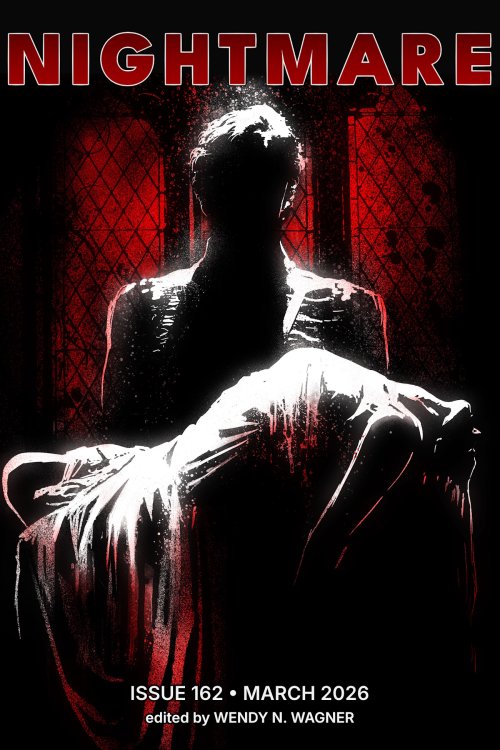Welcome to Issue #128 of Nightmare Magazine!
When I was a freshman in college, eager to knock out all those pesky general education requirements before I dug in and got serious about my major, I signed up for Phil. 207: Early Modern Philosophy, 1500-1750. Philosophy, as I understood it from shelving books as a library volunteer, had something to do with world religions, alien abduction, and/or hallucinogenic drugs. I didn’t know they were into all of that in 1500, but I expected I was in for a fun time.
Spoiler: I was not in for a fun time.
My poor young brain was cracked open by long and convoluted passages by some of Europe’s deepest (and possibly most boring) thinkers. I learned new and important terms like “epistemology,” “sub-standing,” “a priori,” and “solipsism.” I latched onto that one with an unexpected tenacity. How could I prove there was more to the world than the thoughts and feelings flickering through my head? What if reality really was some kind of simulation? How the heck would I know any differently?
Before I knew it, I was casting aside my chemistry major and taking more philosophy classes. And while I, like most baby philosophy students, did cast aside solipsism for something a bit more pragmatic, I do firmly believe that the stories we tell ourselves can start to create our reality.
This issue is about those stories—and the way they come to haunt us.
Ghosts loom large in these tales. We open the month with Keith Rosson’s short story “Primal Slap,” which features a young woman with a shitty job, a difficult dad, and a ghost stalking her. Elena Sichrovsky gives us “Goodnight, Virginia Bluebells,” which is about a young woman coping with the death of her father—who happens to be a serial killer. Aimee Picchi shares a flash story about the sidekick of a ghost hunter in “Nine Lies You Tell Yourself About Ghost Hunting” (I mean, the issue’s theme is right there in the title). And in her poem, Emily Ruth Verona warns us in the title: “We Are Always Walking on Dead Things.”
Before you read any further, touch a bit of potting soil, or perhaps the sidewalk. These things are packed with the bodies of dead entities. They are made from death. Doesn’t that make you feel just a little bit uneasy? And would you still feel that way if I hadn’t put that idea—that story—in your head?
I think it’s important to interrogate the stories we tell ourselves about the world and our place in it. I think it’s even more important to interrogate what we tell ourselves about the people we have known. What power do we give these stories and how will we allow them to shape our paths? Do we remember these people—or are we haunted by them?
A focus on the past continues in our nonfiction department, where Rae Knowles writes about gaslighting in the newest installment of “The H Word.” We also interview Sadie Hartmann about her editorial experiences and her forthcoming book about must-read horror novels. And of course we’ve sat down with our short fiction writers and grilled them about their work. Plus, our ebook readers get an excerpt from Jeremy C. Shipp’s new novel The Merry Dredgers. It’s another terrific issue, which I hope you all enjoy!
As for me, I’m still haunted by my philosophy degree. But at least I’ve conquered the most monstrous thing it brought into my life: student loans.









